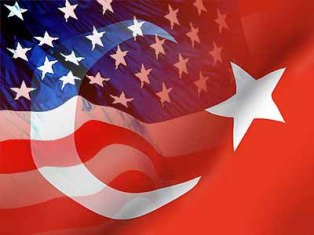The US-Turkish “Visa War” Is a Hybrid War Harbinger

The US-Turkish “visa war” began when Ankara arrested a US consulate employee on terror charges over his suspected connections with the Gulenists, which served as the pretext for the US to do what it had apparently been considering for some time, and that’s effectively block Turks from visiting the US by de-facto including them for the indefinite future on Trump’s “travel ban”. Turkey, keen on retaining its dignity, followed suit with a reciprocal measure for Americans, and the entire episode might serve as a prelude to the official, albeit long-expected, worsening of relations and maybe even potential sanctions.
The US is being careful to not make its moves appear “unprovoked”, hence why it sought to disguise its latest actions as being a “response” to something that Turkey did, because it doesn’t want to push Turkey any closer to the Multipolar World Order than it already has ever since the failed pro-American coup attempt last year saw Erdogan dramatically improve his ties with Russia, Iran, and even the SCO in response. That being said, what’s really happening here is that the US is punishing Turkey for precisely just that, as well as more recently for Erdogan’s remark the other day that “the West’s shadow” is behind all terrorist groups in the world, including the Gulenists, the PKK, and even Daesh.
Furthermore, the US thinks that it is unacceptable that Turkey, which is nominally a NATO member, decided to buy Russia’s S400 state-of-the-art anti-air missile system and is even militarily cooperating with Moscow in an anti-terrorist capacity in Syria, especially in the latest Idlib Operation to implement the “de-escalation zone” that was recently agreed to at the last Astana meeting. Another thing which has contributed to the US’ animosity against Turkey is the country’s vastly improved military relationship with Iran, particularly over the Kurdish issue in recent weeks but with the original breakthrough being made through the Moscow Declaration at the end of last year.
The most immediate implication of the American-Turkish “visa war” is that it will worsen the perception that each country’s people have of the other. Turks will see that this confirms what Erdogan has implied for over a year about how the US is the enemy of the Turkish people, while Americans will be manipulated via decontextualized Mainstream Media reporting into thinking that Erdogan is a rogue anti-American dictator whose country is in urgent need of a “democratic regime change”. Both of these interlinked outcomes will probably contribute to the forecasted deterioration of official relations which might take a multidimensional form in creating serious economic, political, and possibly even military fallout, the latter of which could see the US more openly commit to the Kurds and Gulenists.
The post presented is the partial transcript of the CONTEXT COUNTDOWN radio program on Sputnik News, aired on Friday Oct 13, 2017:
Andrew Korybko is an American Moscow-based political analyst specializing in the relationship between the US strategy in Afro-Eurasia, China’s One Belt One global vision of New Silk Road connectivity, and Hybrid Warfare.

